Basic QC Practices
The 2021 Middle-East QC Survey Results
Is QC in the Middle-East above average? Are the practices there exceeding the global usual? Or are they worse than the rest of the world? The results are in.
The 2021 Middle-East QC Survey Results
Sten Westgard, MS
November 2021
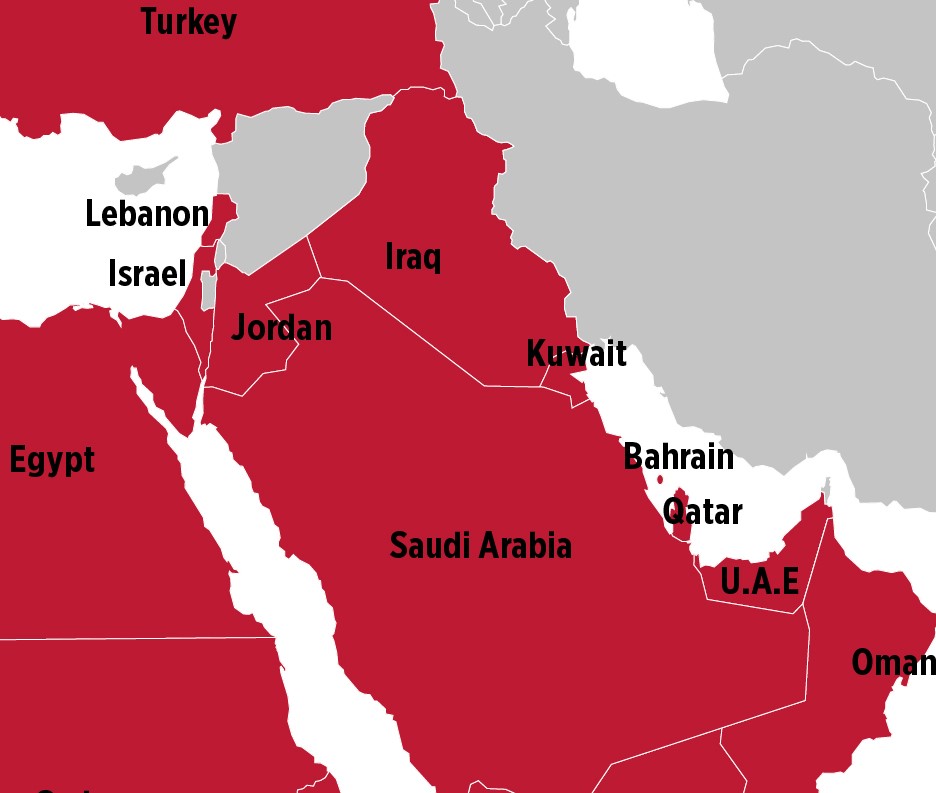
[This survey was completed with the support and partnership of Technopath Clinical Diagnostics.]
- The Top Ten Findings of the 2021 Global QC Survey
- The 2021 Global QC Survey
- The 2021 US QC Survey Results
- The 2021 Asia QC Survey Results
- The 2021 Middle-East QC Survey Results
- The 2021 Latin and South America QC Survey Results
- The 2021 European QC Survey Results
We took a look at all the QC practices in the Middle-East. Let's start by describing the respondents.
The demographics
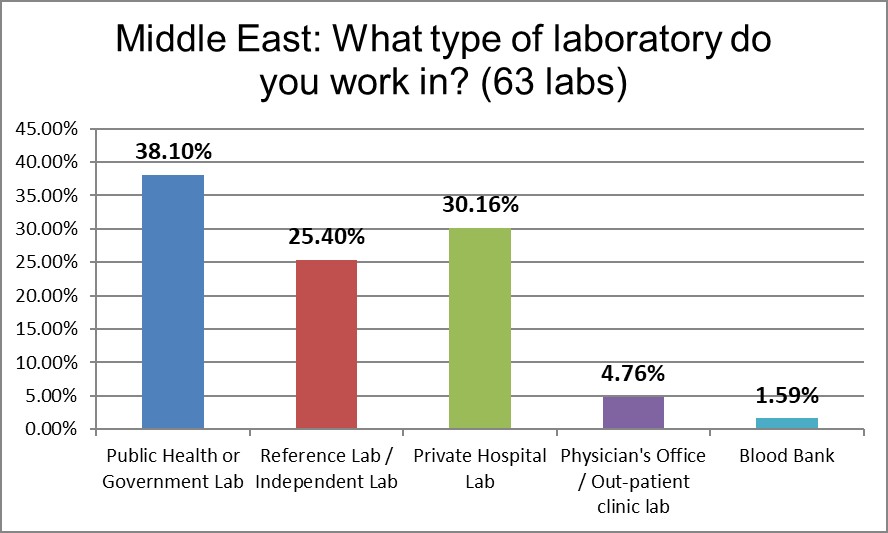
There's an interesting mix between public and private hospitals in the Middle-East, as well as swiftly growing reference lab networks.
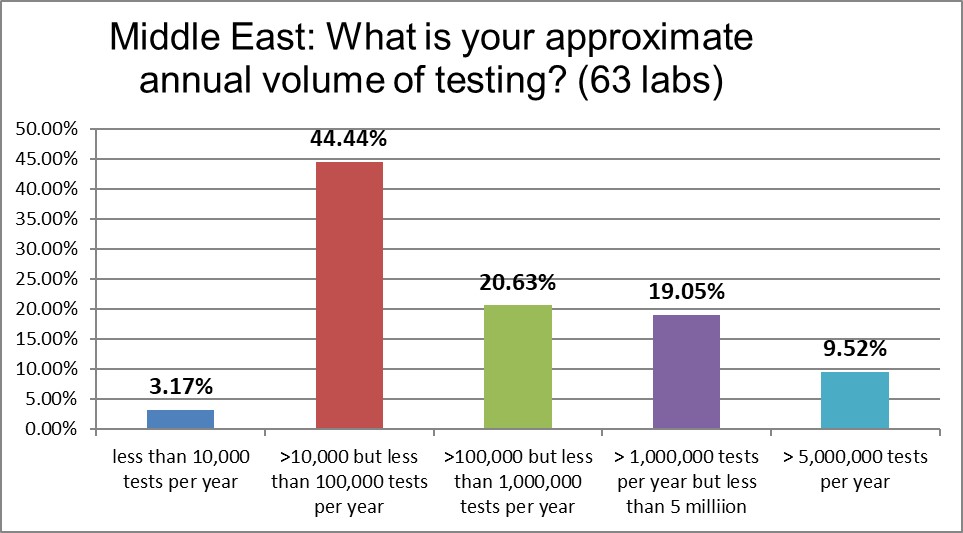
Very few small labs in the area participated in this study. There is a peak number of what we might call "mid-sized" modest laboratories in the region.
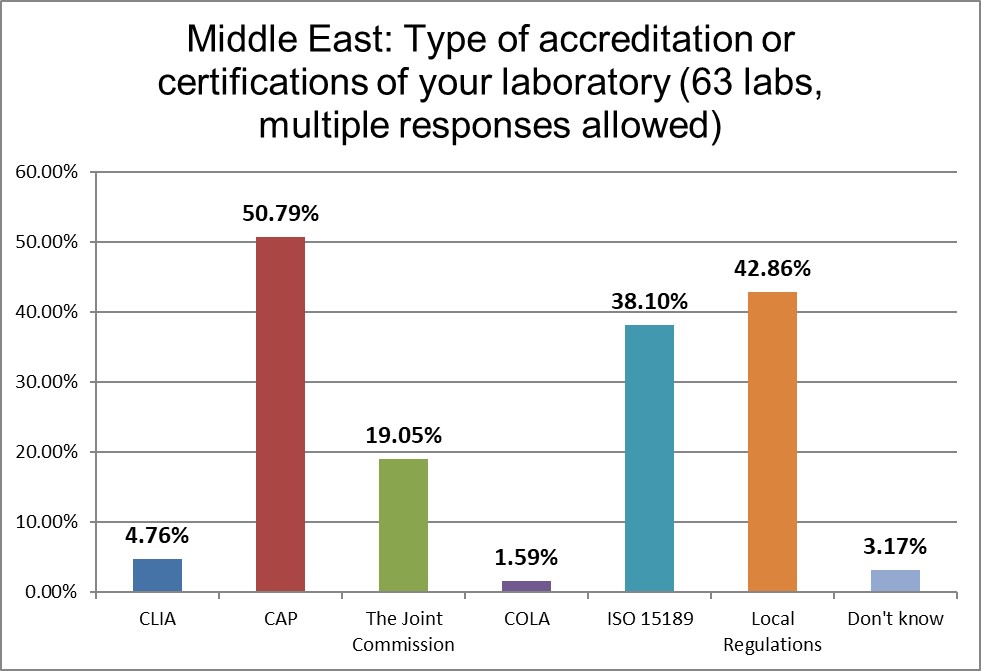
CAP accreditation has a very high profile in the Middle-East, almost as high as in the USA itself.
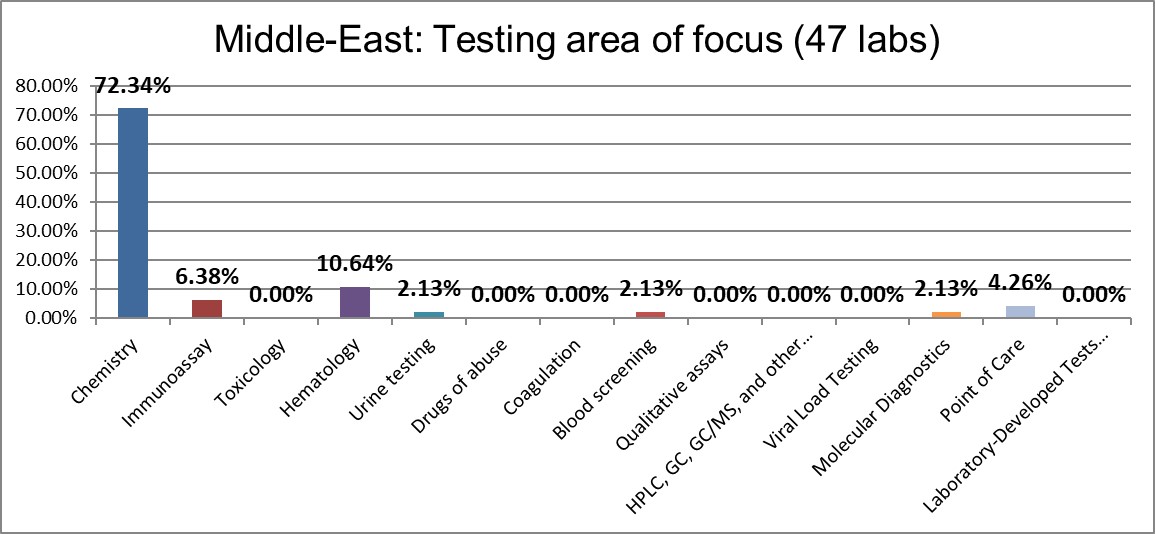
The overwhelming focus of the survey responses is on chemistry testing.
Now, how do these labs practice QC?
The QC Set Up
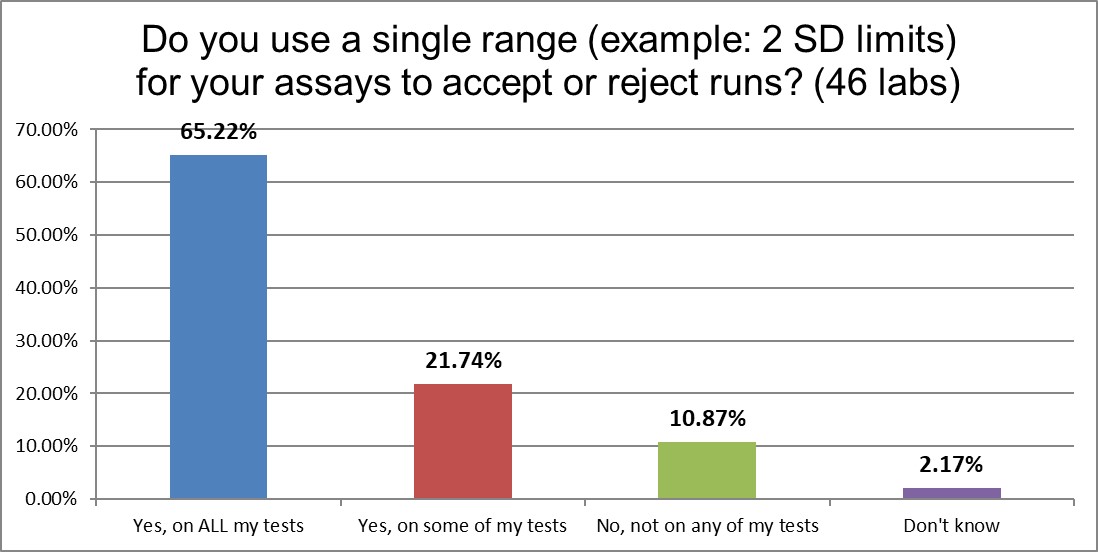
Nearly two out of three labs are using ranges like 2 standard deviations as one of their primary QC techniques. This is less than what we see in the US, and even better, almost 10% of labs have abolished this practice.
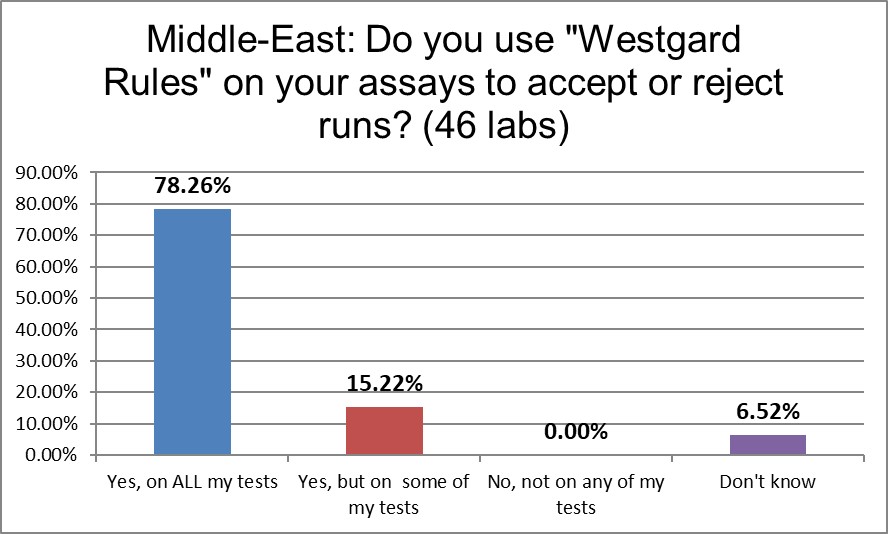
"Westgard Rules" are very strong in the Middle-East. And the only region where there are no labs that report not using "Westgard Rules". Almost 20% more of labs in this area use Westgard Rules on all their tests vs. what happens in the US. This may be where "Westgard Rules" are used more than anywhere else in the world.
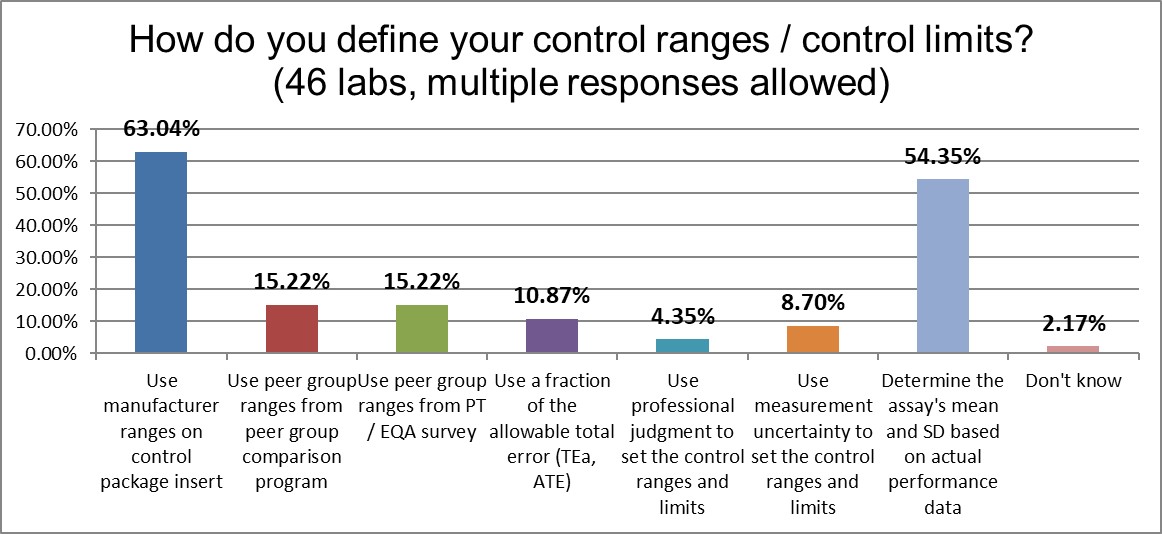
Nearly half of labs calculate the actual mean and the actual SD to create their Levey-Jennings control charts, significantly lower than what we see as the global average and the USA. There is also a higher use of manufacturer ranges.
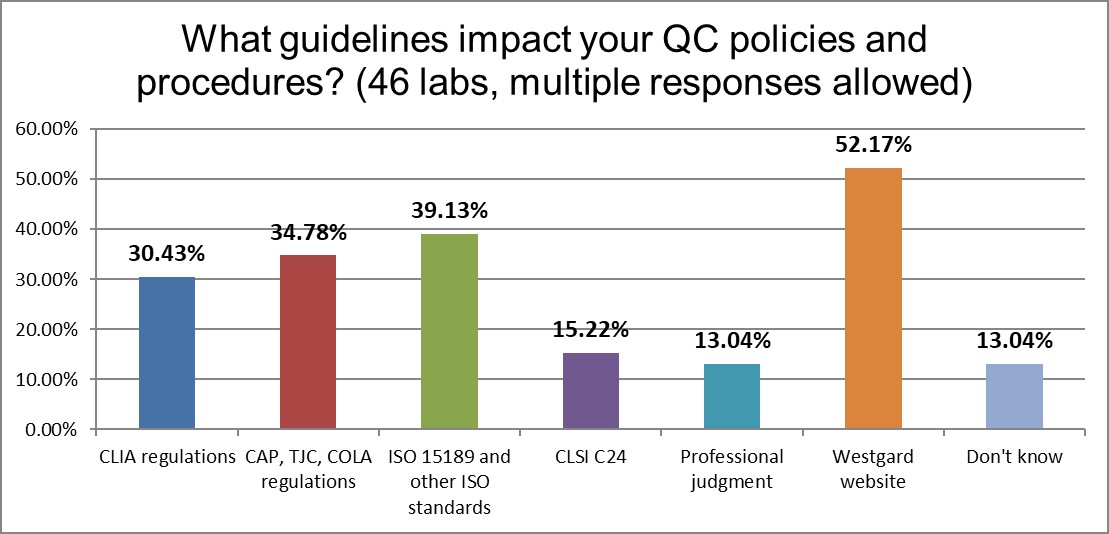
Another way the region stands out uniquely is the influence of the Westgard website, which is actually stronger than most of the regulatory and accreditation bodies. CAP has a very strong influence here. ISO 15189 plays less of an importance here than we see in other regions (with the exception of the USA).
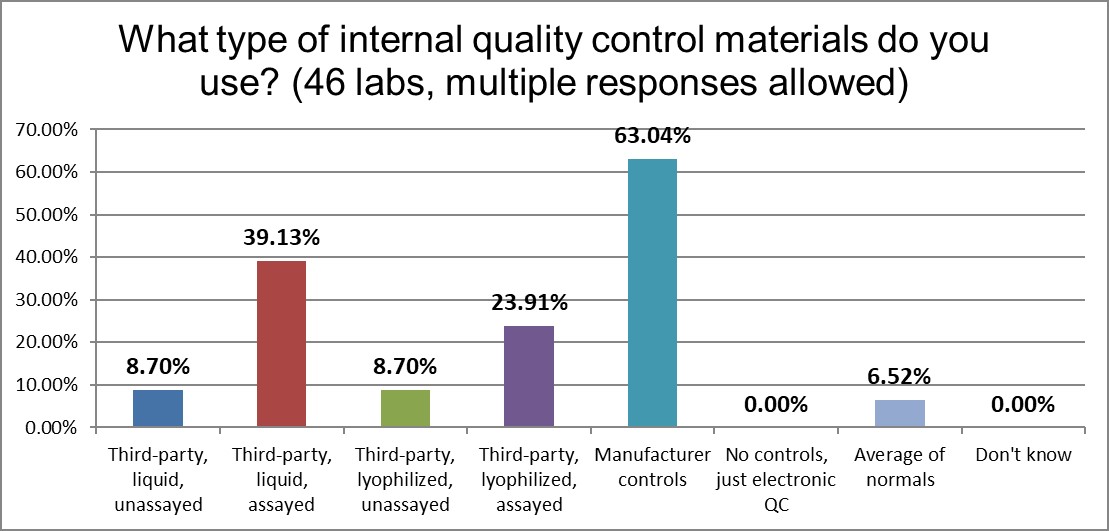
The use of manufacturer controls is still high in this area. Third party assayed liquid controls are very popular, too. Unassayed controls are very unpopular here.
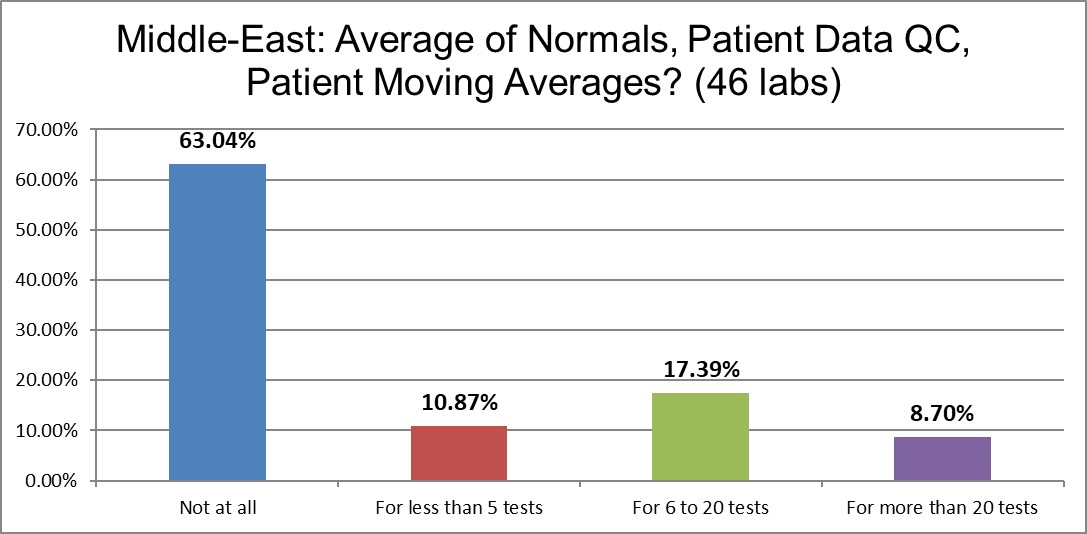
Almost 2 labs out of 3 do not use any PBRTQC. But more than 30% report they are using it for at least a few tests. This may be the part of the world where the most PBRTQC is being performed.
The Real Practice of Running Controls
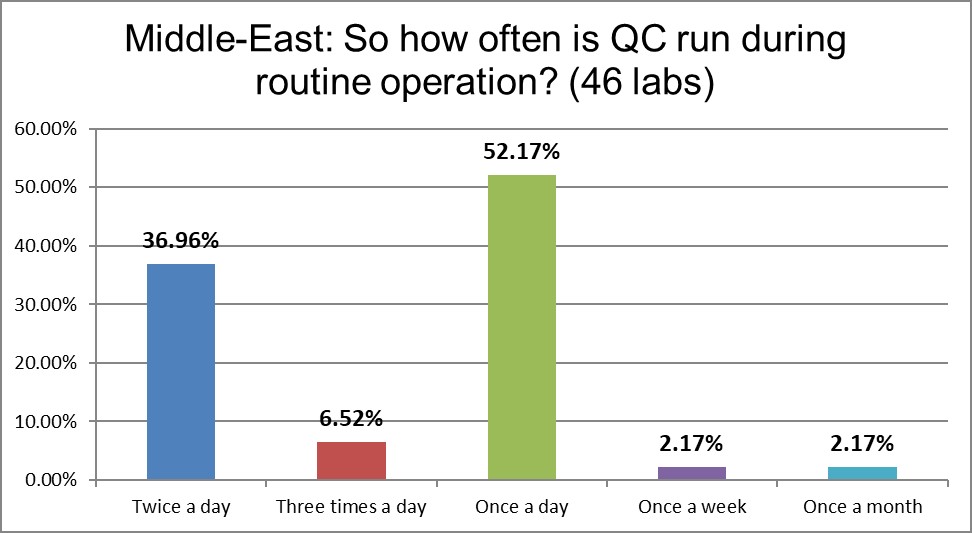
There are more "twice a day" labs and many fewer "three a day" labs in the Middle-East. The once-a-day frequency is about the same as the global average. .
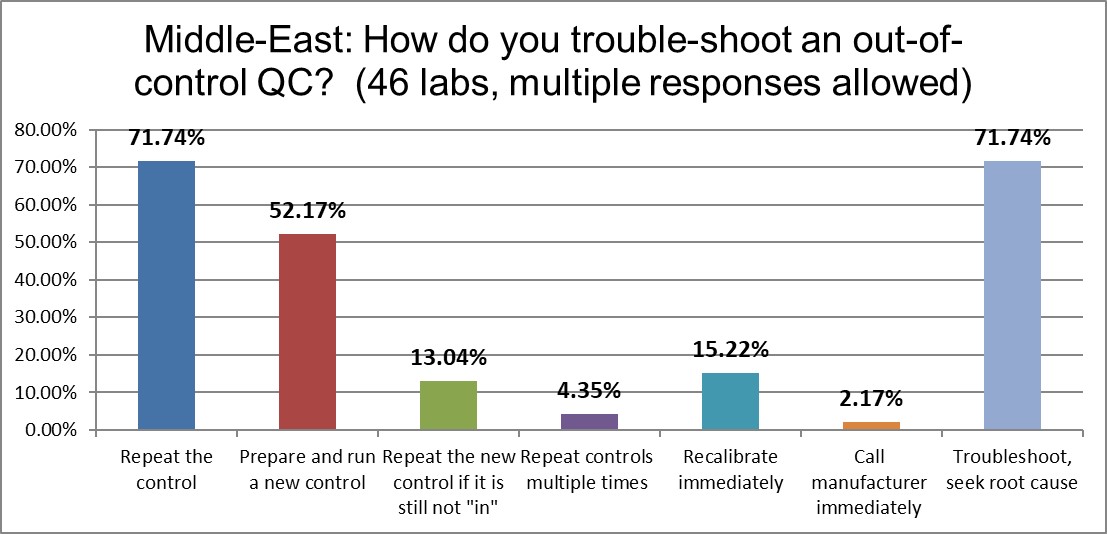
Over 70% of labs in the Middle-East repeat the control when it's out. Over half will run a new control after the repeat. At the same time, an equal percentage say that they troubleshoot and seek the root cause when they get an out-of-control result. .
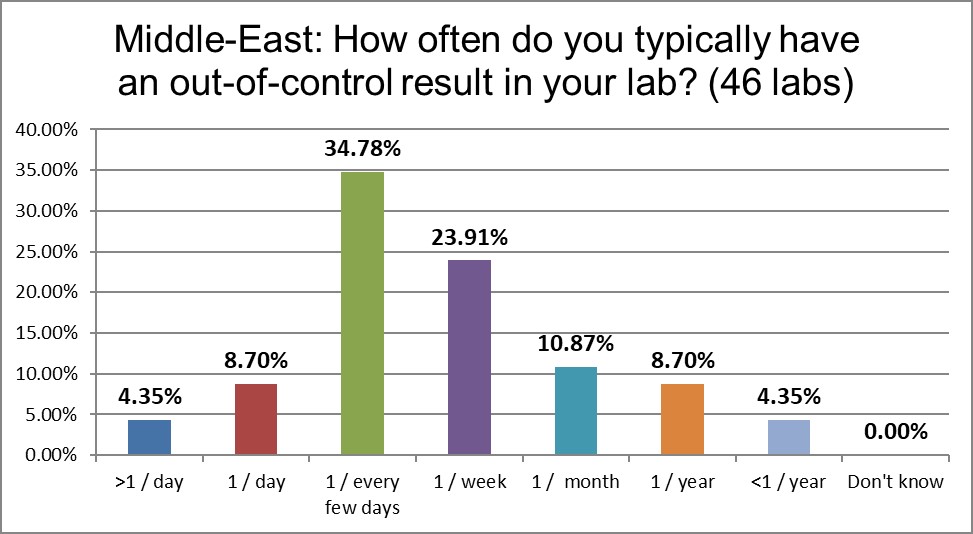
Only 13% of labs report being out of control once a day or more than once a day, significantly less than the global average, and even more significantly less than the US (half the rate!). The positive take on this is to hope that labs here are finding better ways to prevent errors from happening. The pessimist view on this would be that there may be errors going undetected instead.
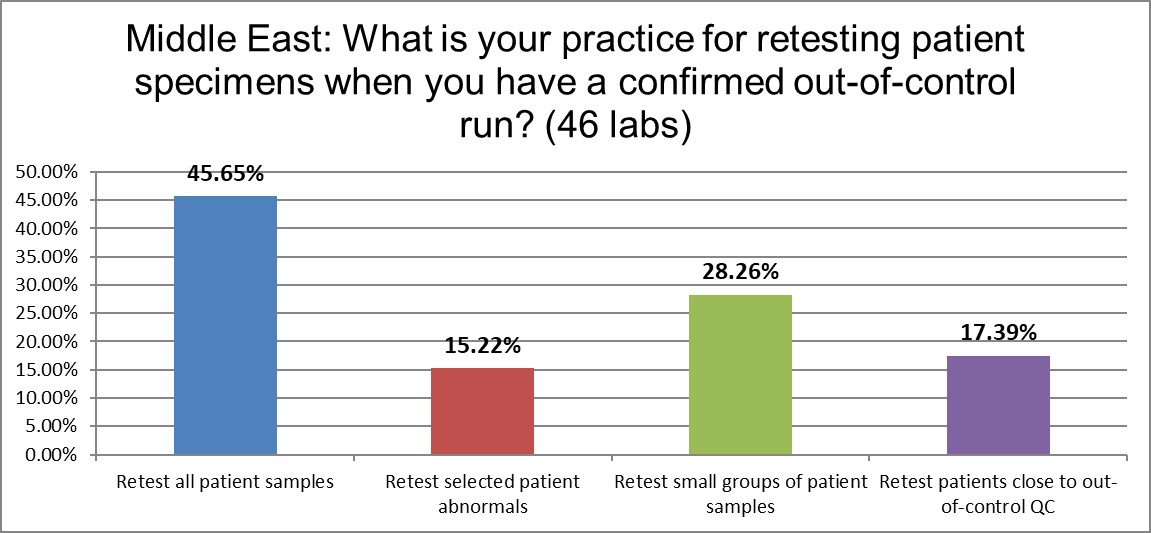
The Middle East re-runs all patients at a higher rate than the global average and labs in the US.
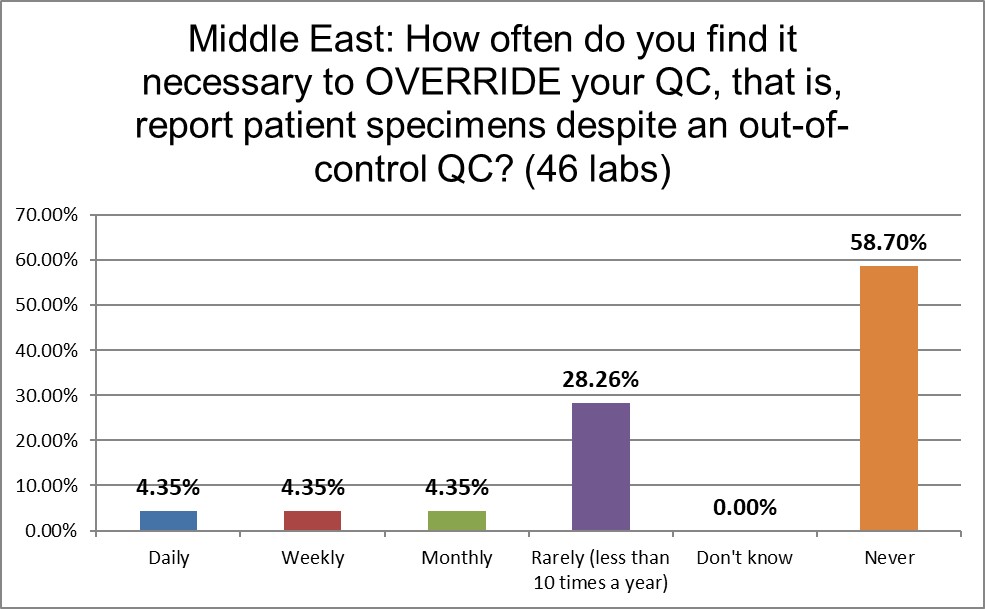 .
.
Labs are three times more like to override their QC and report patients than what is reported for the US. But that's still a bit lower than the global average.
The Final Overview
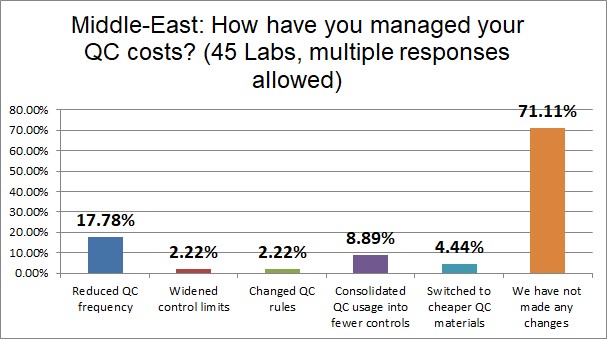
Despite all these instances of outstanding practices, nearly three-quarters of labs have not made any meaningful changes to reduce their QC costs. Very few changes are being made to control limits, rules, and QC materials. While a lot of good things are being done in the Middle-East, there are many more opportunities to do even better.
